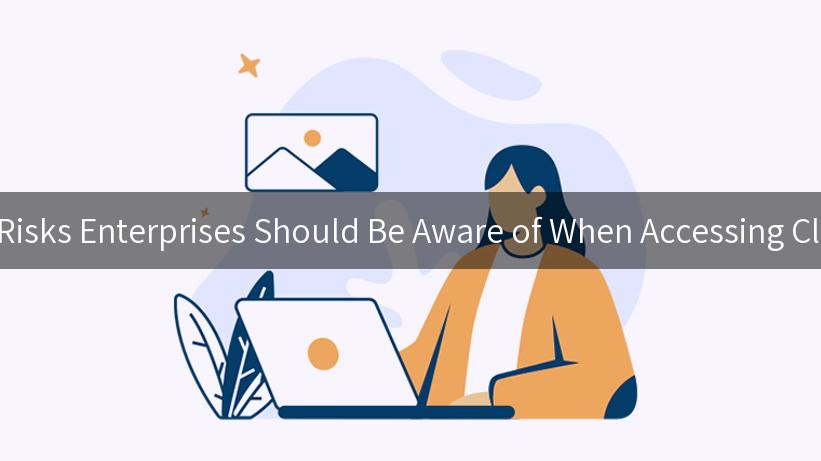
Introduction
In an increasingly digital landscape, businesses are making extensive use of APIs to connect different services, enhance functionality, and streamline processes. The Claude API, which offers robust artificial intelligence capabilities, is a popular choice among enterprises looking to leverage AI technology. However, along with the benefits of integrating such APIs, there are significant security risks that enterprises must be aware of. This article will delve into the various security threats associated with accessing the Claude API and provide actionable strategies to mitigate these risks.
Understanding API Security
API security encompasses the practices and tools designed to protect APIs from malicious attacks and unauthorized access. Given the high stakes involved in handling sensitive data and crucial business operations through APIs, focusing on robust API security is paramount for enterprises. Below, we will explore key aspects of API security that specifically pertain to the Claude API.
Common Security Risks
- Authentication and Authorization Breaches
-
Authentication verifies the identity of a user or application trying to access the API, while authorization determines what level of access they have. Poor management of these processes can lead to unauthorized access and data breaches.
-
Data Exposure
-
APIs often handle sensitive information. If proper security measures are not in place, there is a risk of this data being exposed during transit or at rest.
-
Injection Attacks
-
APIs are susceptible to various injection attacks, where malicious code is inserted into a request. This can lead to unauthorized actions, data corruption, or compromised systems.
-
Rate Limiting and DDoS Attacks
-
Without sufficient rate limiting, APIs become vulnerable to Distributed Denial of Service (DDoS) attacks, overwhelming the system with requests and rendering the service unavailable.
-
Insecure Endpoints
- API vulnerabilities can occur at various endpoints, particularly if they are not secured properly. Any exposed endpoint can become an entry point for attackers.
Importance of Using NGINX for Secure API Access
Using NGINX as a reverse proxy for API management can significantly enhance the security of your API calls, including those made to the Claude API. NGINX can provide several security features, including:
- SSL/TLS Encryption: Encrypts data in transit using Secure Sockets Layer (SSL) or Transport Layer Security (TLS).
- IP Whitelisting: Restricts API access to only specified IP addresses.
- Rate Limiting: Controls the number of requests processed over a given period, which can deter DDoS attacks.
- Request and Response Filtering: Analyzes incoming requests for malicious content and denies them before they reach the application layer.
Diagram: NGINX API Security Architecture
Here’s a simplified diagram illustrating how NGINX enhances API security:
+-------------------+ +-----------------+
| Client (User) | | NGINX Proxy |
| (Browser) | | |
+-------------------+ +-----------------+
| |
| HTTPS Requests (TLS Encrypted) |
|-------------------------------> |
| |
| API Requests/Filter |
|<------------------------------- |
| |
| API Response/Filter |
|<------------------------------- |
| |
+-------------------+ +-----------------+
| Claude API | | Backend Server |
+-------------------+ +-----------------+
APIPark is a high-performance AI gateway that allows you to securely access the most comprehensive LLM APIs globally on the APIPark platform, including OpenAI, Anthropic, Mistral, Llama2, Google Gemini, and more.Try APIPark now! 👇👇👇
Best Practices for Secure API Access
- Implement Strong Authentication Mechanisms
-
Use OAuth 2.0 or API keys with strict security practices such as rotating keys and implementing scopes that grant minimal necessary permissions.
-
Utilize Secure Coding Practices
-
Evaluate your code for SQL injection and other common vulnerabilities. Use parameterized queries and input validation to minimize risks.
-
Enable SSL/TLS Encryption
-
Always encrypt API communication using SSL/TLS. This ensures that data transmitted between clients and servers is secure and cannot be intercepted.
-
Adopt Rate Limiting
-
Enforce rate limits on your API to safeguard against DDoS attacks and abuse. NGINX allows you to set up these limits quickly.
-
Regularly Update and Patch Software
- Ensure that your servers, APIs, and libraries used in integration are regularly updated to address known vulnerabilities.
API Security Testing
Conducting regular penetration testing, vulnerability scanning, and audits of your API can help identify potential security weaknesses. By simulating attacks, businesses can understand and mitigate security flaws before they can be exploited.
Example: Using cURL to Test API Security
The following example shows how to perform a basic test on the Claude API endpoint:
curl --location 'https://api.claude.com/v1/endpoint' \
--header 'Content-Type: application/json' \
--header 'Authorization: Bearer YOUR_API_TOKEN' \
--data '{
"query": "Test security measures."
}'
Conclusion
Accessing the Claude API offers substantial benefits, but enterprises must remain cognizant of the associated security risks. By implementing best practices, utilizing tools like NGINX for enhanced security, and regularly testing their APIs, businesses can effectively protect their sensitive data and maintain the integrity of their operations. With a proactive stance against security risks, organizations can leverage the capabilities of the Claude API while mitigating potential threats.
Through careful planning, robust security and a commitment to ongoing vigilance, enterprises can navigate API access securely and confidently.